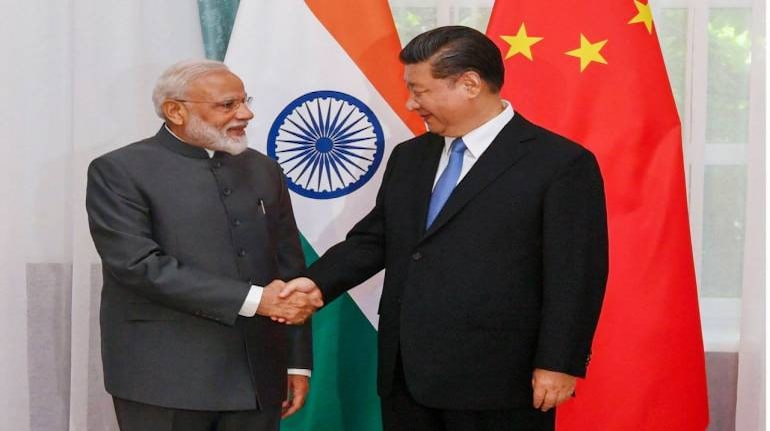

The outcome of the recently concluded Shanghai Cooperation Organisation (SCO) summit in Bishkek, Kyrgyzstan, shows that New Delhi is still in the process of discovering the utility of its membership in the organisation. Although India has been participating in SCO summits as an observer since 2005 and as a full-fledged member since 2017, policymakers still seem unclear what they want to achieve through this organisation.
In the changing geopolitical scenario, the SCO has clearly provided a delicate equilibrium to China, Russia and the Central Asian states. Although Moscow and Central Asians find India’s entry useful for an internal balance in the Chinese-dominated organisation, New Delhi has to bring something concrete to the table to be taken seriously by other members. This is obviously not an organisation to be used by New Delhi to score a few points over Islamabad.
After his re-election, the summit was the first multilateral engagement for Prime Minister Narender Modi. Indeed, this was a good opportunity for him to touch base with the Chinese, Russian, Central Asian, Afghan, Iranian and Pakistani leadership.
The Bishkek declaration asserted that “the global balance of forces is going through a reconfiguration” and “the SCO is a reliable platform for fruitful cooperation in the interests of creating a polycentric world order”. For India, this was an opportunity to present its coherent SCO strategy, which would have synchronised New Delhi’s connect Central Asia policy, Wuhan spirit, India-Russia partnership as well as its policies towards Afghanistan, Pakistan and Iran. In the changing geopolitical scenario, this was also an opportunity to signal western powers, including the United States about New Delhi’s intentions and objectives in a reconnecting Eurasia.
At the end of the summit, what we have is some mixed reactions and responses. As usual, a significant media focus in India was on exchange of pleasantries between Indian and Pakistani prime ministers as well as issue of Modi using or not using Pakistani airspace for his travel to Bishkek. These are non-issues in the context of the SCO.
Modi outlined the Indian vision for the SCO through an acronym ‘HEALTH’. H: healthcare cooperation, E: economic cooperation; A: alternative energy; L: literature and culture; T: terrorism-free society; H: humanitarian cooperation. For engaging a serious organisation having the potential to play a significant role in the emerging Asian architecture, this was more of a slogan rather than a serious policy announcement.
As per official documents, major issues discussed at the summit included international terrorism, global economic governance, Agenda 2030 for sustainable development goals, situation in Afghanistan and Syria, as well as implementation of Iran’s nuclear deal. All members, except India, also supported Chinese Belt and Road Initiative (BRI) and aligning the Russian initiated Eurasian Economic Union projects with the BRI.
Modi also emphasised on major Indian connectivity initiatives in Eurasia like the International North South Transport Corridor (INSTC), Chabahar port, Ashgabat Agreement, as well as air freight corridors between Kabul and Kandahar and New Delhi and Mumbai. However, there was no effort made to link them with the SCO project plans.
The SCO is the only platform where Central Asian and South Asian countries come together. For India to play a larger role in the evolving Asian architecture, these two regions are crucial. India considers South Asia as its own area of influence. Similarly, Central Asia used to be a Russian-dominated area. Now most economies in both these regions are orbiting towards Chinese economy through trade and BRI projects.
In changing global realignments, SCO membership is an opportunity for India to outline its joint plans for broader Eurasia. The US New Silk Road strategy linking Central and South Asia through Afghanistan has not taken off. A possible SCO role in an uncertain Afghanistan was also one of the main reasons for India to ask membership in the organisation. Iran is also crucial for New Delhi for its connectivity plans in the region. Tehran is already participating, as an observer and future membership is a possibility.
So all key partners of any Indian Eurasian plan meet together in the SCO. It is up to New Delhi to just participle in deliberations with deep suspicions or shape the organisation within so-called Shanghai spirit.
Gulshan Sachdeva is Jean Monnet Chair at the School of International Studies, Jawaharlal Nehru University, and Editor-in-Chief, International Studies. Views are personal.
Discover the latest business news, Sensex, and Nifty updates. Obtain Personal Finance insights, tax queries, and expert opinions on Moneycontrol or download the Moneycontrol App to stay updated!